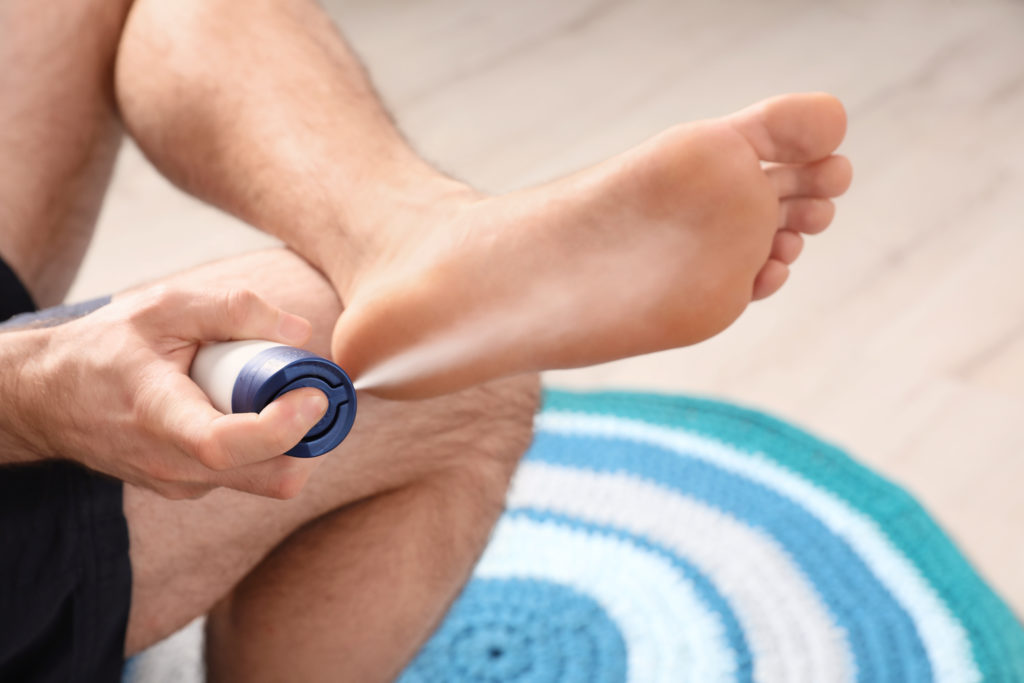Understanding the Origin of Excessive Sweating and Its Impact on Every Day Life
Too much sweating, also understood as hyperhidrosis, is a problem that influences a significant part of the populace, yet its hidden reasons and effects on daily working stay rather enigmatic. While it is generally understood as a physiological reaction to control body temperature level, the triggers for too much sweating can differ widely among individuals, encompassing not only physical elements however psychological and also emotional elements. Moreover, the effect of this problem expands past plain pain, often influencing social interactions and overall quality of life. By diving right into the root creates of hyperhidrosis and exploring its diverse results, a deeper understanding of this prevalent problem can be gained, losing light on the complexities that individuals grappling with excessive sweating navigate on a daily basis.
Physiology of Sweat Glands
The policy of sweat manufacturing, an essential physical procedure, is primarily managed by the task of sweat glands distributed across the human body. Sweat glands are classified right into two primary kinds: eccrine and apocrine glands.
When the body temperature level rises, either because of physical task, heats, or emotional stress and anxiety, the nerves sets off the gland to generate sweat. This sweat is composed mainly of water and electrolytes like sodium and chloride. The procedure of sweat manufacturing is essential for preserving the body's interior temperature level within a slim, optimal range, highlighting the vital duty gland play in human physiology.
Triggers for Excessive Sweating
In understanding the origin of extreme sweating, it is vital to recognize the triggers that can bring about this physical response. Excessive sweating, also referred to as hyperhidrosis, can be prompted by various elements, both physiological and environmental. One usual trigger is emotional anxiety or anxiousness, which can promote the body's gland to produce more sweat than is needed for cooling. Physical exertion, high temperatures, and spicy foods are also understood to set off extreme sweating in individuals vulnerable to this problem. Particular clinical conditions like diabetic issues, menopause, or hyperthyroidism can contribute to too much sweating as well.
Additionally, drugs such as some antidepressants, opioids, and specific supplements can also function as triggers for hyperhidrosis. Understanding these triggers is essential in handling excessive sweating properly - How to stop sweaty hands. By recognizing and dealing with the details triggers that prompt too much sweating in an individual, health care service providers can create personalized therapy strategies to minimize this problem and improve the individual's lifestyle
Medical Conditions Associated
Connected with too much sweating are various medical conditions that can aggravate this physiological reaction. One usual problem is hyperhidrosis, a disorder defined by extraordinarily increased sweating that surpasses the body's thermoregulatory requirements. This can show up in focal locations like reference the palms, soles, underarms, or face, affecting an individual's lifestyle as a result of social embarrassment and discomfort.
Additionally, endocrine disorders such as hyperthyroidism, diabetes mellitus, and menopausal warm flashes can likewise lead to excessive sweating. Hyperthyroidism creates an overflow of thyroid hormones, Web Site accelerating metabolic rate and activating sweating.
Furthermore, infections like tuberculosis, HIV, and endocarditis have actually been connected with night sweats, a common signs and symptom known to disrupt rest and impact overall health. These medical problems highlight the diverse series of underlying aspects that can contribute to too much sweating, requiring comprehensive analysis and administration by healthcare experts.
Psychological and psychological Factors

Effect On Social Interactions
Too much sweating can have profound impacts on a person's capability to involve comfortably in social communications. The noticeable indications of sweat discolorations or wet spots on clothing can cause humiliation and self-consciousness, creating people to withdraw from social situations. This withdrawal can influence relationships, restriction social activities, and impede expert and individual development.

Moreover, the anxiety and self-confidence problems originating from too much sweating can influence interaction and interpersonal skills. Individuals may struggle to concentrate on conversations, join team tasks, or reveal themselves confidently. This can lead to feelings of isolation and loneliness, as social connections become challenging to maintain.
Conclusion

While it is generally recognized as a physical reaction to regulate body temperature level, the triggers for too much sweating can differ widely amongst people, including not only physical variables yet likewise emotional and emotional components. By delving right into the origin causes of hyperhidrosis and discovering its diverse effects, a much deeper understanding of this prevalent issue can be obtained, dropping light on the complexities that people grappling with excessive sweating browse on an everyday basis.
Physical exertion, high temperature levels, and spicy foods are also recognized to activate excessive sweating in people prone to this problem. By determining and addressing the certain triggers that prompt too much sweating in an individual, medical care companies can develop individualized treatment plans to alleviate this problem and boost the individual's top quality of life.
Excessive sweating can have extensive effects on an individual's capacity to engage easily in social communications.
Comments on “Expert Dermatology Solutions for Treatment of Hyperhydrosis of Hands: Comprehensive Guide”